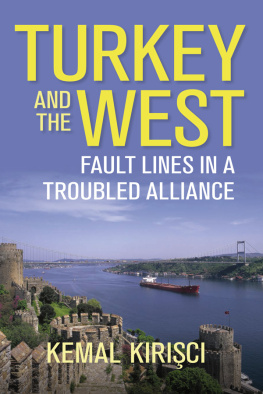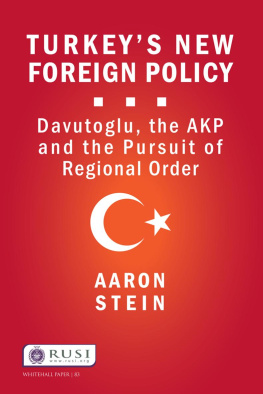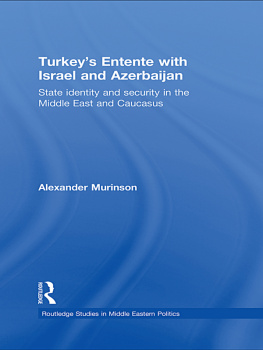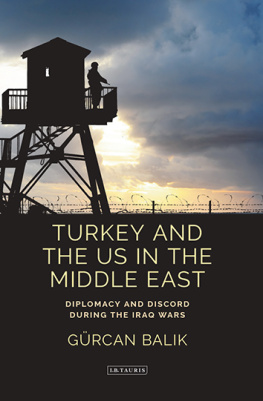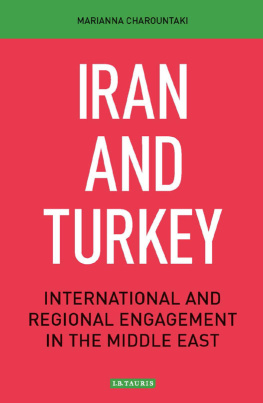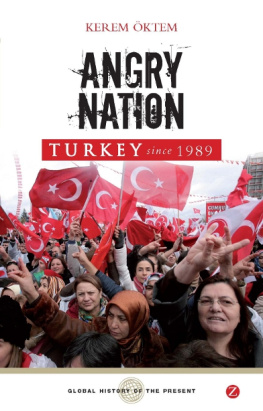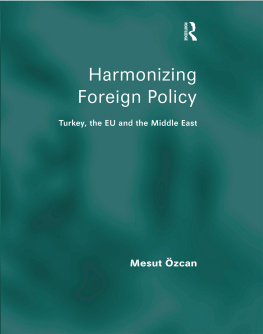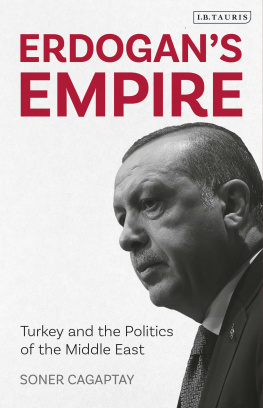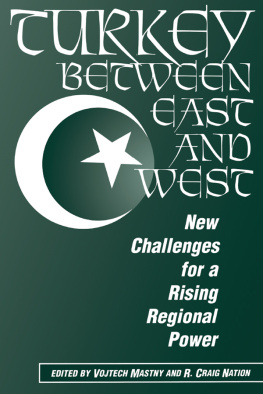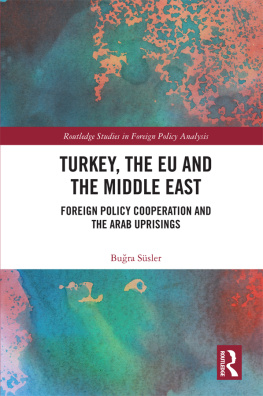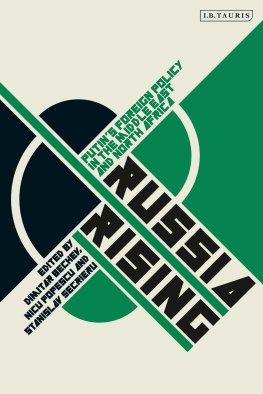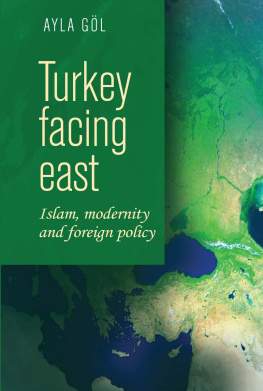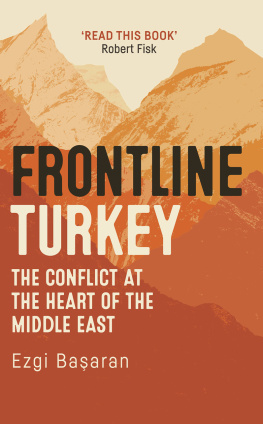GEOPOLITICS IN THE 21ST CENTURY
For a quarter century since the fall of the Berlin Wall, the world has enjoyed an era of deepening global interdependence, characterized by the absence of the threat of great power war, spreading democracy, and declining levels of conflict and poverty. Now, much of that is at risk as the regional order in the Middle East unravels, the security architecture in Europe is again under threat, and great power tensions loom in Asia.
The Geopolitics in the 21st Century series, published under the auspices of the Order from Chaos project at Brookings, will analyze the major dynamics at play and offer ideas and strategies to guide critical countries and key leaders on how they should act to preserve and renovate the established international order to secure peace and prosperity for another generation.
Copyright 2018
THE BROOKINGS INSTITUTION
1775 Massachusetts Avenue, N.W., Washington, D.C. 20036
www.brookings.edu
All rights reserved. No part of this publication may be reproduced or transmitted in any form or by any means without permission in writing from the Brookings Institution Press.
The Brookings Institution is a private nonprofit organization devoted to research, education, and publication on important issues of domestic and foreign policy. Its principal purpose is to bring the highest quality independent research and analysis to bear on current and emerging policy problems. Interpretations or conclusions in Brookings publications should be understood to be solely those of the authors.
Library of Congress Cataloging-in-Publication data are available.
ISBN 978-0-8157-3000-2 (cloth : alk. paper)
ISBN 978-0-8157-3001-9 (ebook)
9 8 7 6 5 4 3 2 1
Typeset in Sabon and Scala Sans
Composition by Westchester Publishing Services
In loving memory of my late parents who were a constant support and helped me learn to transcend borders
CHAPTER ONE
Turkey and the West
A Troubled Alliance
AS THE SECOND DECADE of the twenty-first century moves beyond its midpoint, the transatlantic alliance faces growing instability on multiple fronts. The conflict in Syria has entered a new stage since the Russian-imposed cease-fire in December 2016 and the April 2017 U.S. missile attack on a Syrian air base to punish the regime for its chemical attacks on civilians. Though considerable gains were made against the self-styled Islamic State (IS) in Iraq and Syria during 2016 and 2017, IS continues to threaten not only the future of the Middle East but security in Europe and the United States as well. Irans gradual reincorporation into the international community has failed to bring an element of order to the region. At the time of completion, the summer of 2017, Yemen and Libya are still in the grip of civil war, while Tunisia, the only success story among the Arab Spring countries, is not yet on solid ground. Russias actions in the post-Soviet space and its growing military assertiveness in the Middle East and eastern Mediterranean region continue to cloud Moscows relations with the West. The European Union is trying to put itself back together after the global financial crisis of 200809 and is struggling with the consequences of the migration crisis that began in 2015, while nationalism is on the rise in a number of EU member countries. The issue of Brexit remains unresolved more than a year after the referendum and continues to constitute a challenge to the future shape of the EU.
This grim picture is accompanied by growing concerns about the ability of the transatlantic community to confront these challenges together and uphold the international liberal order. A major question clouding
The bulk of the institutions that would form the basis of the international liberal order emerged between 1944 and 1951 in the form of the Bretton Woods institutionsthe International Monetary Fund (IMF) and the World Bankthe United Nations, the Marshall Plan, the General Agreement on Tariffs and Trade (GATT), the Organization for Economic Cooperation and Development (OECD), and the North Atlantic Treaty Organization (NATO). Turkey was quick to join all these organizations. Membership to NATO in 1952 was particularly critical and was seen by the then U.S. ambassador to Turkey, George C. McGhee, as a sign the country was becoming an integral part of Europe and the West.
Initially this liberal order remained constrained to Australia, Canada, Western Europe, Japan, New Zealand, and the United States. This picture changed dramatically when first the Berlin Wall came down and then, after decades fraught with tension, an exhausted Soviet Union in the late 1980s began a quiet collapse from the inside. Eastern bloc countries, released from the sphere of Soviet influence, turned to the West for a new chapter in military security and political affiliation. NATO and the EU expanded into Central and Eastern Europe, instilling in the region an unprecedented sense of security and creating a basis for growing economic prosperity as well as liberal democratic governance.
There was hope in some quarters that these developments heralded a unipolar moment as the rest of the world, not just the global north, This did not happen, and the state of world affairs today is starkly different from what was envisioned at the end of the Cold War.
Turkey joining Western institutions might have not occurred had it not been for the fear of Soviet expansionism and territorial demands made by Joseph Stalin on Turkey during the closing months of World War II, as well as the growing domestic calls for democratic reforms. Modern Turkey had emerged from the collapse of the Ottoman Empire at the end of the World War I when Atatrk and his colleagues fought back occupying European powers to win the independence of the country in 1923. Atatrks reforms had led to a steady growth of Westernization that was guided by a vision of secularization. However, ruined by wars and population displacements, the country had adopted a Soviet-like planned economy and a one-party political system. During the course of World War II, smet nn, Atatrks successor, followed a policy of neutrality and resisted Allied calls to join the war against Germany until February 1945. This experience would leave an important legacy in Turkeys relations with the West.
During the course of the Cold War, Turkeys democracy evolved hesitantly and was interrupted by military coups on a number of occasions. Domestically, its membership in the transatlantic community and especially NATO was periodically questioned. It would not be until the 1980s that Turkey would start transforming its economy from a primarily state-led import substituting to a liberal market economy. A slow and highly contested process of democratization would then follow this from the late 1980s on. Eventually these two developments would open the way in 2005 for membership talks with the EU, and it increasingly seemed that Turkey was becoming solidly anchored in the international liberal order. By the time the EU and the United States had entered into one of their worst economic recessions in 2008, Turkey was being touted as a model for countries aspiring to join the international liberal order. Its rising soft power, constructive foreign policy, and economic engagement of its neighborhood (the Balkans, countries bordering the Black Sea, the South Caucasus, and the Middle East) were seen as assets for bringing this neighborhood into the international liberal order. Yet this did not last long. The international liberal order began to encounter challenges from within, as both the United States and the EU experienced economic difficulties and challenges from outside powers, especially China and Russia, which sought an alternative order. Furthermore, Turkish democracy began to recede, its economic dynamism started to fade, and its leadership, increasingly driven by an Islamist agenda, became embroiled in the conflicts of the Arab Middle East.

